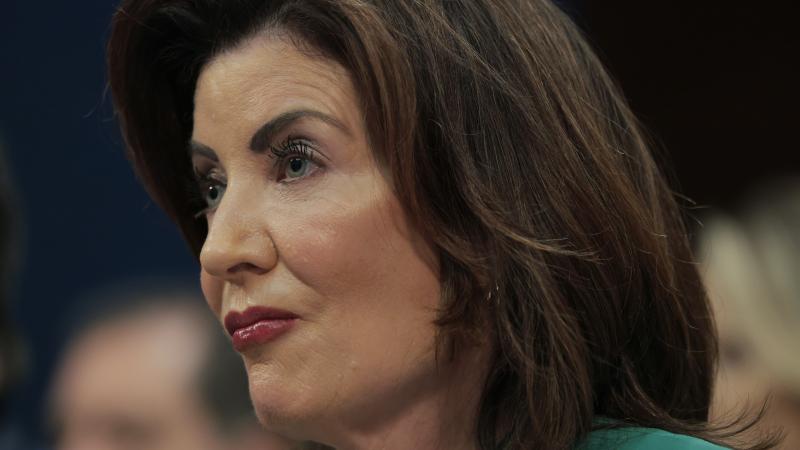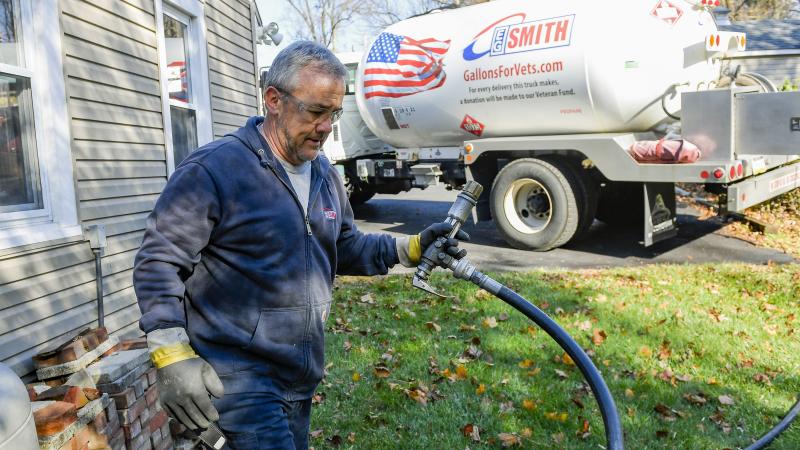Washington state governor signs ‘natural gas ban bill’ into law
“This bill creates the roadmap and tools for our state’s largest utility to get out of the fossil fuel business,” Gov. Jay Inslee says
Gov. Jay Inslee on Thursday afternoon signed into law a controversial bill meant to allow Puget Sound Energy to start planning how to move away from natural gas.
“This bill creates the roadmap and tools for our state’s largest utility to get out of the fossil fuel business and achieve net zero emissions by 2050,” Inslee said of Engrossed Substitute House Bill 1589 during the bill-signing event from the International Brotherhood of Electrical Workers Local 46 in Kent.
The governor went on to say, “The planning required in this bill ensures we prioritize low-income and vulnerable customers by helping them convert to non-emitting energy. This will improve their homes' indoor air quality and make sure they are not the ones left covering the costs of stranded gas assets.”
Not everyone on Inslee’s side of the political aisle agreed with that assessment in the lead-up to the governor’s signing of ESHB 1589.
Inslee had been under pressure from environmental and progressive groups since March 7, when the bill was delivered to his desk, to veto Section 7 of the bill those groups – including the Sierra Club, Washington State Budget and Policy Center, Washington State Community Action Partnership, and Sightline Institute – say favor PSE’s investors over customers exposed to rate hikes.
“PSE supports the bill in its entirety and opposes a veto of Section 7,” PSE spokesperson Melanie Coon emailed The Center Square previously.
She noted that energy customers are already transitioning away from natural gas, adding that ESHB 1589 will help.
“This legislation is intended to allow the utility, under the supervision of the UTC [Washington Utilities and Transportation Commission], to thoughtfully and transparently plan to meet the ambitious clean energy policies required by Washington,” Coon explained. “An energy transition is already underway as customers reduced their natural gas consumption by 7% for residential customers and 3% for commercial customers in 2023. Natural gas usage is forecasted to continue to decline over the next five years, even as consumers’ use of electricity increases and the share of green electricity PSE uses to meet those loads grows dramatically.”
Coon said PSE wants to make sure costs don’t fall disproportionately on the poor.
“The provision concerning accelerated depreciation ensures that current natural gas customers who are benefitting from the infrastructure pay their fair share of the costs before they leave the system, helping to protect against an undue cost burden falling on an increasingly smaller group of customers, particularly those who can least afford it,” she concluded. “PSE has already dramatically expanded its low-income bill assistance programs and established a new bill discount rate for qualifying customers to protect them through this long transition.”
Democrats in the state Legislature generally support ESHB 1589, claiming it represents an orderly transition from natural gas as part of an overall plan to mitigate the effects of climate change.
Republican critics of the legislation – dubbed by some as the “natural gas ban bill” – contend it will increase energy costs to ratepayers and add to the price of new homes.
Any rate increase as a result of ESHB 1589 would have to be approved by the UTC.















